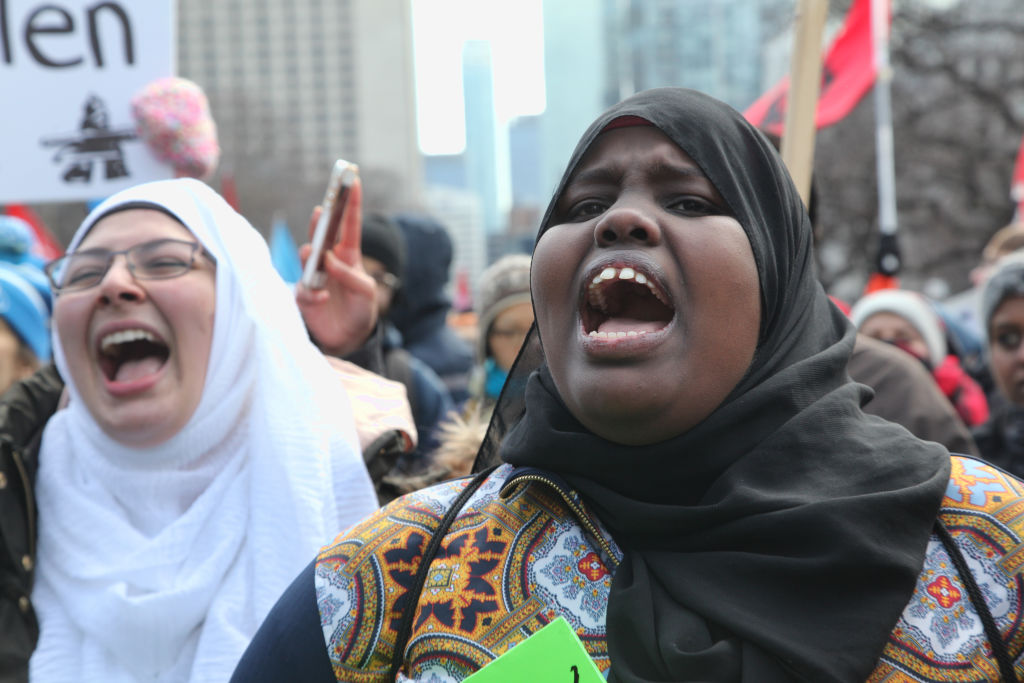TORONTO – Racial profiling is a harmful form of discrimination that can be profoundly damaging to its victims and their communities, and undermines trust in public institutions, a new human rights report concludes.

The report by the Ontario Human Rights Commission released Wednesday finds a widespread feeling among racial minorities and indigenous people that their complaints about the practice have been ignored.
“Racial profiling can have profound personal impacts,” the report states. “(It) also has harmful impacts on the social fabric of society.”
The report, “Under Suspicion,” which runs to 110 pages without appendices, combines social science research with first-hand accounts from more than 1,600 individuals and organizations. It finds aboriginal people, blacks, Muslims, Arabs and West Asians are most affected by the negative stereotypes that result in racial profiling.
Among other things, the report finds the profiling, which often flows from deeply-rooted institutional culture, can affect almost all facets of a person’s life – from shopping, to driving and getting around, to attending school.
READ MORE: Family of Ontario man killed by Peel police alleges racial prejudice in lawsuit
“This report confirms what racialized communities have known for generations: racial profiling is real,” Renu Mandhane, the province’s chief human rights commissioner, said in a statement. “Rebuilding trust requires concrete action to address racial profiling in all its forms.”
The report contains numerous observations from people who have experienced the negative effects of profiling.
“I’m frequently followed by police while driving, to the point that I expect it to happen,” one black man is cited as saying.
VIDEO: Nova Scotia’s strategy to stop racial discrimination in stores is earning mixed reviews. Some call a new training course a big step in the right direction. But as Ross Lord reports, others say it doesn’t go far enough.

“I saw the criminalization of racialized youth over time, and have witnessed racial profiling more times than I can count,” a former white police officer told the researchers.
Overall, the report finds profiling to be a “pervasive” practice that goes far beyond policing. Victims recounted issues in stores, with schools and child-welfare agencies, in areas of transportation and even national security.
READ MORE: Shoppers Drug Mart forced to pay $8,000 in Ontario racial profiling case
While the first-person accounts and responses have not been independently verified and have no strict scientific validity, they nevertheless point to important concerns about people’s experiences, the report states. For example, almost three-quarters of black respondents to a survey said they had been racially profiled. By contrast, only 11 per cent of white participants reported such an experience.
The study finds that racial profiling is not just about conscious or unconscious individual bias, but that it can be subtle and normalized within organizations. Patterns of informal social behaviour – communication, decision-making and interpersonal relationships – can impart deeply-held, if largely unconscious, assumptions and behavioural norms. In essence, the report concludes, the problem needs addressing on a systemic level.
VIDEO: A big win – and relief – for a New Brunswick woman who won a case against Shoppers Drug Mart after proving she was the victim of racial profiling by an employee in Toronto. Cary Lieberman has her story.
While not enough has changed since the commission did similar research in 2003, the report finds, one bright spot is what appears to a growing awareness that there is in fact a problem that needs fixing.
READ MORE: Toronto man launches human rights complaint against police
“Nevertheless, many still deny the reality of racial profiling,” the report finds. “Racial profiling is entrenched in society, is complex, and can be challenging for all involved in addressing it.”
The report urges concrete action and “decisive” steps to prevent, identify and respond to racial profiling.
For its part, the commission says it will develop “policy guidance” focused on policing, child welfare, the courts and corrections. It will also continue calls for the collection of race-based data to better understand racial disparities in areas that include education and child welfare.
- Ontario hospital workers awarded 6% pay increase, new agreement on agency nurses
- S&P/TSX composite closes up nearly 100 points, U.S. stock markets mixed
- Pedestrian in life-threatening condition after being hit by vehicle in Mississauga
- Judge at trial of man accused of killing cop was concerned over Crown changing theory



Comments